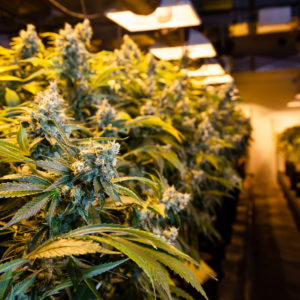The majority of athletes in the sports industry use cannabis, yet only few are starting to admit it as the decades-long controversial ban is slowly being lifted around the world. With the rise of recreational marijuana use, aspiring athletes, as well as amateur lifters, are turning their attention towards the possible benefits THC and CBD compounds might have on their performance.
While the prevalent use of marijuana is unmistakable in the fitness industry, the question still remains whether or not marijuana hinders or improves athletic and anaerobic performance. Here is how marijuana affects your strength and muscle-building potential.
Research vs anecdotal testimonies
Unsurprisingly, not a lot of research regarding the influence of marijuana on physical capabilities has been conducted on humans due to the (almost) worldwide ban preventing researchers to adequately ascertain the level of performance in athletes. Nonetheless, the studies that have been conducted would indicate that cannabis use has the potential to impair performance in training.
On the other hand, marijuana is highly revered in numerous athletic circles, permeating every sport from UFC to bodybuilding and strength training. Many lifters have admitted to frequent if not regular marijuana use and testified to its benefits, Arnold Schwarzenegger among others. So how does cannabis truly fare in the strength and muscle building arena?
Building muscle and strength
To answer this question, we need to look at both sides of the proverbial coin. On one hand, cannabis use is not recommended for strength and bodybuilding athletes prior to training, as it might impair performance, decrease testosterone levels, reduce exercise capacity and time to exhaustion.
Additionally, because of the psychoactive THC and CBD compounds, taking marijuana prior or during training might even prove to be dangerous in the long run, simply due to the lack of mental clarity and physical coordination. While taking marijuana on occasion prior to lifting weights is fine, with some benefits, making it a habit could lead to subpar results in the future.
Recovery is where marijuana shines
However, simply because it doesn’t fare well in training doesn’t mean that marijuana doesn’t have other benefits. This is where the other side of the medallion shines, as cannabis can be extremely beneficial in aiding the post-workout recovery process. And any experienced lifter will testify that post-workout recovery is essential for building size and strength.
During exercise, you are disrupting the homeostasis of your muscle tissue and your central nervous system, causing the damage necessary for growth. By using proper weightlifting shoes and protective clothes while training and supplementing your post-workout routine with marijuana, you’ll create a balance between disruption and recovery. The active compounds will help you eliminate muscle soreness and CNS fatigue, and increase your appetite.
Smoking to get big
Cannabis is world-renowned for its ability to open up an appetite, something that strength and bodybuilding athletes need desperately to keep making gains and increase the weight on the bar. However, you need to exercise caution, as only short-term cannabis use can be beneficial for your appetite. That is why athletes using marijuana are advised to “cycle” it during their bulking or maintenance mesocycle to get the maximum benefits.
Using marijuana to cut weight
On the other hand, if your plan is to cut, frequent cannabis use can help you achieve your desired weight. Continual marijuana use has been shown to inhibit the CB1 receptors in the body, causing a loss of appetite in the long term.
Frequent marijuana use can, therefore, serve as a supplementary tool to subdue food cravings and maintain your preferred calorie intake on a daily basis. However, for this effect to take place, athletes would have to partake more than three times per week, over the course of six or more months.
Marijuana has been a great part of the fitness industry for decades, with athletes hailing from all sports using its benefits to gain an edge over the competition and reach their goals. If used moderately, it can also be a powerful tool strength athletes, as well as bodybuilders, can use to achieve better results in the gym.
credit:themaven.net













